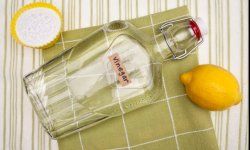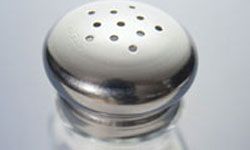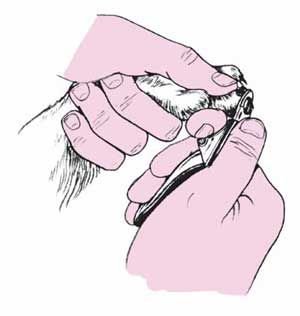Vinegar comes in handy for a lot of tasks, but did you know you can use it to help care for pets and other animals, too? That's right. Animal and pet care can be enhanced with a little vinegar. This article includes several tips for caring for various animals using vinegar. We'll start with pets -- including cats, dogs, rabbits, and parrots.
Cat Care
Use vinegar to clean out a kitty litter pan. Remove the litter, and pour in 1/2 inch of vinegar. Let the vinegar stand for 15 minutes. Pour it out, and thoroughly dry the pan. Then sprinkle it with baking soda, and add fresh kitty litter.
Advertisement
Dog CareMinimize soap residue after a dog's shampoo by adding vinegar to the rinsewater. Rinse again with plain water.
After a therapeutic shampoo to treat a skin infection, rinse the dog with a solution of 1 part apple cider vinegar to 3 parts water.
Floppy-eared dogs can be prone to yeast infections in their ears, especially after bathing or grooming. To avoid getting water in your dog's ears, plug its ears with cotton balls moistened with apple cider vinegar.
Another ear-cleaning remedy is to mix 1 tablespoon of vinegar, 1 tablespoon of hydrogen peroxide, 1 tablespoon of yucca root tea (available at health food stores), 1 drop of lavender oil, and 1/2 cup of aloe vera gel. Gently apply to the ear with cotton swabs to clean.
If your dog had a tussle with a skunk, minimize the odor by rinsing his coat with undiluted vinegar. Be sure to keep the vinegar out of the dog's eyes during this process. Some skunk smell may remain, but it will be kept under control as it gradually wears off.
If your dog comes home with a swollen nose, most likely he's been stung by a wasp or bee. Make him feel better by bathing the affected area in vinegar.
Rabbit Care
Use vinegar to clean out rabbit litter boxes and to control buildup of dried urine.
Parrot Care
Some birdcages are made with galvanized hardware cloth (a type of wire), which can lead to zinc poisoning. This is very harmful to parrots. Decrease the chance of poisoning by wiping the entire cage with vinegar on a cloth before use.
As you'll find out in the next section, you can provide the same kind of care with vinegar on other animals, too.
Advertisement


